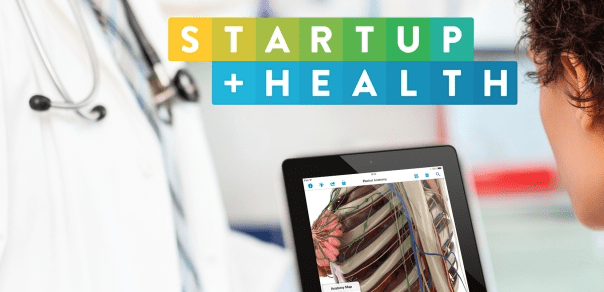The Fourth Industrial Revolution merges the physical, digital and biological worlds. The need for human connections has never been greater. With virtually unlimited possibilities business model shifts are occurring across every industry including healthcare. How we work and communicate is undergoing a profound paradigm shift – asking every member of society to rethink their values and goals. Startups are emerging leveraging virtual care platforms to predictive analytics with visions of revolutionizing the consumer experience.
These healthcare startups are attacking the edge of healthcare capturing the attention of patients and their loved ones. For example, Apixio is focused on care delivery and quality measures with their cognitive computing platform to increase Medicare Advantage (MA) risk adjustment accuracy, proficiency, and productivity. Pieces Technologies offers population health solutions with predictive analytics. They provide end-to-end monitoring, prediction, documentation & discovery software for health systems and community-based organizations. Lantern, focuses on online mental health wellness services and products. Medicast is helping hospitals and health systems bring back the house call. This new platform offers care delivery for the on-demand age. Medicast helps hospitals and health systems modernize their care delivery networks with sophisticated, easy-to-use technology that has been designed in collaboration with patients and physicians. Health insurance exchanges will need to partner with technology innovators to survive.
Despite U.S. Department of Health and Human Services confirmations that marketplaces will continue to grow – it may be nearly impossible with limited plan choices, increased prices, and consolidated competition. Roughly 13 percent, 1.6 million of the 12.7 million who enrolled by the end of March 2016 didn’t renew their coverage. Plan drop outs were largely due to unpaid premiums. Apparently, even small price increases matter. Meanwhile, California rates to increase 13.2% for 2017 , meanwhile the Vermont exchange rejected a vote to increase rates by 8 to 10 percent for 2017. Apparently, even small price increases matter. Consumers will soon be forced to select plans network that contains fewer providers and contain limited plan offerings. According to an analysis by Avalere, health plans offering preferred provider organization (PPO) networks in 2016 dropped from 39 percent to 27 percent; representing a 31 percent decline over the last three years. Will competition increase when Aetna acquires Humana or Anthem takes over Cigna? Doubtful.
There continues to be a mass exodus from health exchanges, making room for startups. Exchanges have been so focused on not drowning; they forgot that survival involves more than making payroll. Health plans are critical to exchange success. The problem is health plans are running for the door. UnitedHealth Group will be exiting 26 of the 34 insurance exchanges where it operates sighting expected 2016 losses of $650 million. Some markets to be impacted from UnitedHealth Group’s exit include Alabama, Arkansas, Colorado, Connecticut, Georgia, Louisiana, Maryland, Michigan, Missouri, Nebraska, North Carolina, Oklahoma, Pennsylvania, Tennessee, Texas, Washington, among others. Stabilization is going to be slow when 795,000 consumers lose coverage and must find new plans (and likely more expensive plans). Blue Cross Blue Shield of Minnesota (dropping PPOs only), starting in 2017. In 2015 the Blues reported a $265 million loss from the individual markets impacting 100,000 consumers. HealthyCT, in Connecticut, was recently placed under an order of supervision requiring all 40,000 HealthyCT consumers to select new plans. This brings the total Connecticut carriers onAccess Health CT for 2017, down to two. Collectively not a good story for consumers expecting choice in 2017.
Health insurance exchanges need to reconsider what makes themselves effective from the consumers’ perspective, and which partners are required for success.
Article originally published in Health Insurance Marketplace News in July 2016.
References
Buzz, B. (2015). Calling all Healthcare Startups in Odisha (online image). Retrieved from http://www.bhubaneswarbuzz.com/updates/enterpreneurs/calling-all-healthcare-startups-in-odisha-chance-to-win-rs-10-lakhs
Nichol, Peter B. (2016). Thought Leaders’ Corner: What does the future hold for small businesses in the public and private Exchange markets. Health Insurance Marketplace News, Volume 4 (Issue 12), 2.
Peter B. Nichol, empowers organizations to think different for different results. You can follow Peter on Twitter or his blog Leaders Need Pancakes. Peter can be reached at pnichol [dot] spamarrest.com.
